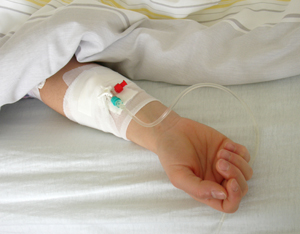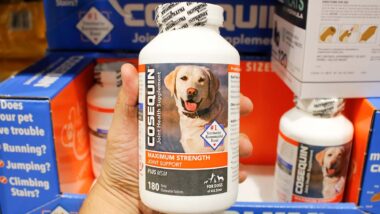Top Class Actions’s website and social media posts use affiliate links. If you make a purchase using such links, we may receive a commission, but it will not result in any additional charges to you. Please review our Affiliate Link Disclosure for more information.

Oakley Orange lives in the United Kingdom but his story mirrors that of many young epilepsy patients across the pond in the United States. What began as a rash and sent him to the hospital now appears to be the first sign of an autoimmune disease where the body attacks its mucus membranes.
According to local reports, Oakley was diagnosed with toxic epidermal necrolysis as more than 30 percent of the skin on his body died off. As he continues to recuperate, medical professionals say that over the course of his stay, his entire body suffered from burn-like damage. His parents had filled a prescription for a medication that would help limit his epileptic seizures, and that medication is believed to be the root cause of his condition.
Nearly all anti seizure medications used to treat U.S. epilepsy patients come with a black-box warning from the U.S. Food & Drug Administration (FDA) about the risk of Stevens Johnson Syndrome, a rare but life-threatening reaction that starts off as a skin rash and can quickly progress into symptoms similar to third-degree burns. These are the strongest advisories regarding drug side effects and they indicate that the likelihood of developing the precursor to toxic epidermal necrolysis often occurs at either the beginning of treatment or soon after a dosage change.
Treatment for these conditions is problematic, as there is no exact cure. Nearly all patients are transferred to burn units in hospitals, and many attempt to soothe inflamed or dying skin as well as occasionally prescribe steroids to reduce the immune system’s inflammatory response. However, even in the case of a relatively healthy child like Oakley, the survival rate can sometimes be just a coin flip. Doctors and nurses in hospitals can often only try to alleviate the pain and wait for the response to dissipate.
Dozens of product liability lawsuits have been filed against drug makers for failing to adequately warn about the true risks of developing side effects like Stevens Johnson Syndrome and toxic epidermal necrolysis. Many plaintiffs have been awarded millions of dollars in damages to help them pay for hospital bills, lost wages, pain and suffering, and more.
In general, SJS lawsuits are filed individually by each plaintiff and are not class actions.
Do YOU have a legal claim? Fill out the form on this page now for a free, immediate, and confidential case evaluation. The attorneys who work with Top Class Actions will contact you if you qualify to let you know if an individual lawsuit or class action lawsuit is best for you. Hurry — statutes of limitations may apply.
ATTORNEY ADVERTISING
Top Class Actions is a Proud Member of the American Bar Association
LEGAL INFORMATION IS NOT LEGAL ADVICE
Top Class Actions Legal Statement
©2008 – 2024 Top Class Actions® LLC
Various Trademarks held by their respective owners
This website is not intended for viewing or usage by European Union citizens.
Get Help – It’s Free
Help for Victims of Stevens Johnson Syndrome
If you or a loved one were diagnosed with Stevens Johnson Syndrome (SJS) or toxic epidermal necrolysis (TEN) after taking a prescribed or over-the-counter medication, you may be eligible to take legal action against the drug’s manufacturer. Filing an SJS lawsuit or class action lawsuit may help you obtain compensation for medical bills, pain and suffering, and other damages. Obtain a free and confidential review of your case by filling out the form below.
An attorney will contact you if you qualify to discuss the details of your potential case at no charge to you.
Oops! We could not locate your form.












